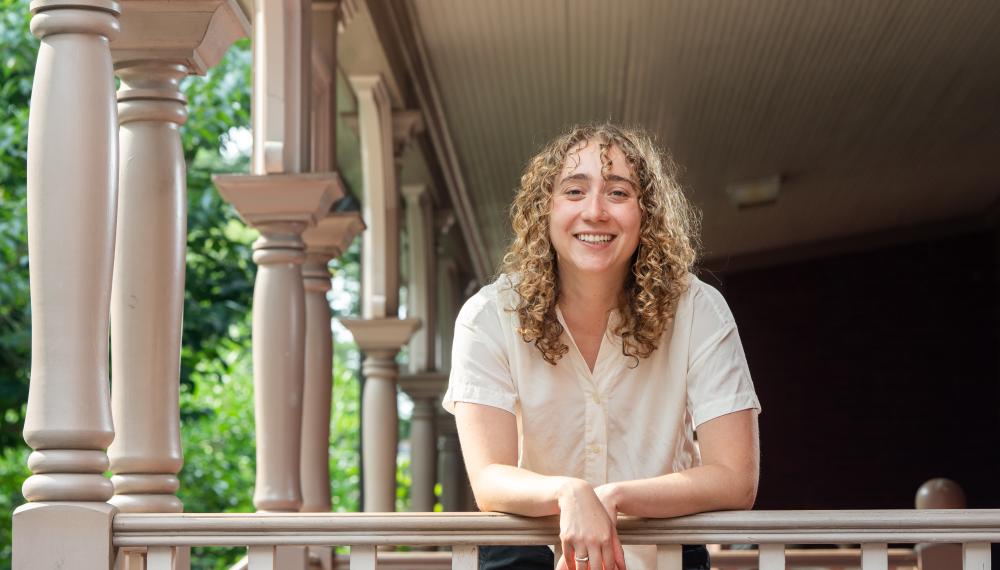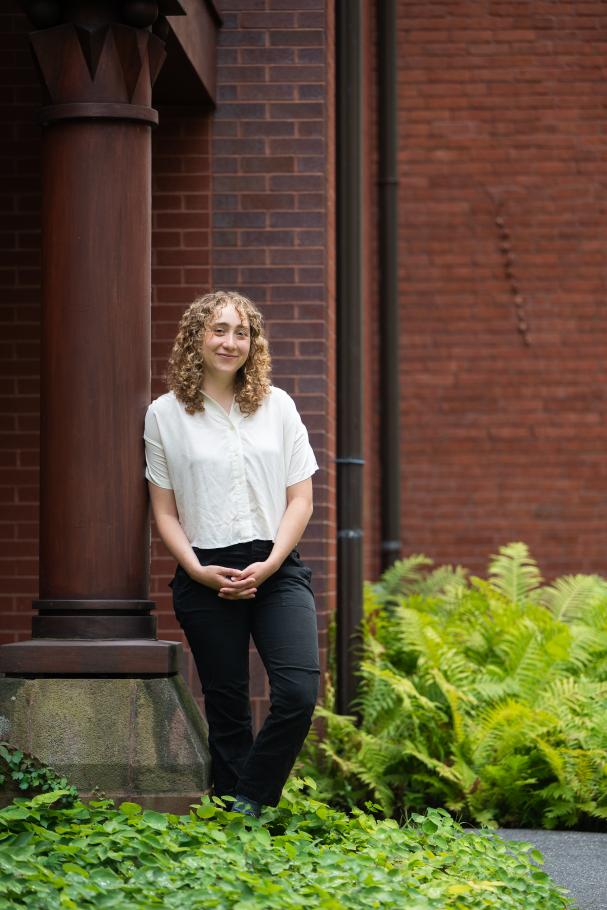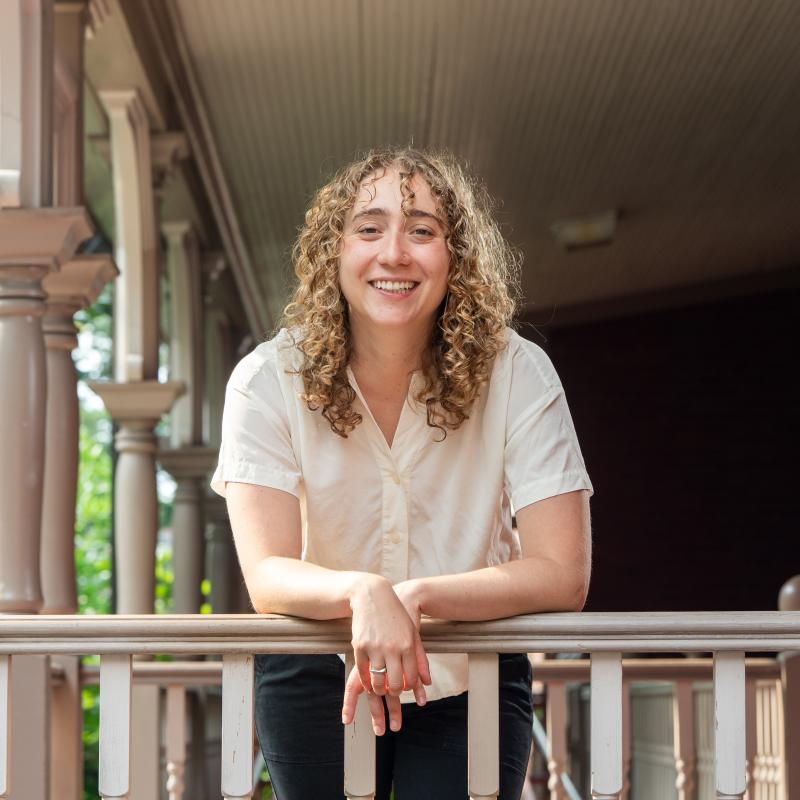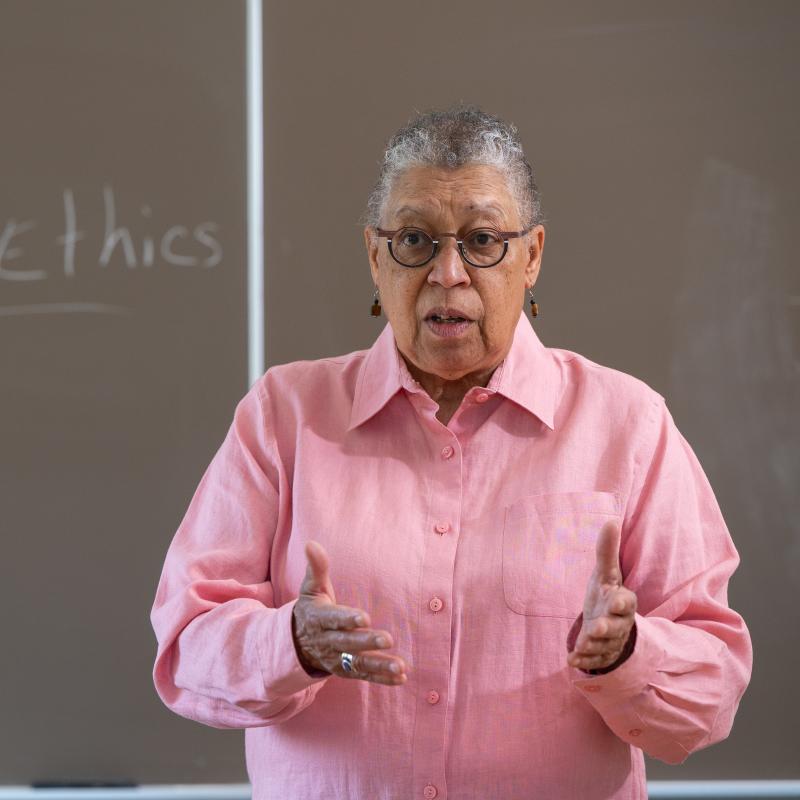
After graduating from Bard College in 2018 with a degree in International and Global Studies, Isabel Snodgrass, M.S.W., ’25, traveled widely. She taught English and honed her Spanish in Mexico. She signed up to be a Peace Corps volunteer and went to Samoa (unfortunately, the onset of the pandemic forced her to evacuate from that Pacific archipelago nation a half a year later). In 2021, she was off again, this time to Hilo, Hawaii, where she worked with adolescents for two years in a residential treatment center.
And then, the summer of 2023, she entered the M.S.W. program in the School for Social Work. “There’s value in seeing different parts of the world,” Snodgrass said, “but when I came to Northampton to go to Smith, I was ready to start putting some roots down.”
In fact, she was returning to her roots, having grown up in Northampton. It wasn’t even her first time studying at Smith; in high school, she took courses at the college. During the pandemic she had lived in Northampton with her mom, who was struggling with a traumatic brain injury. The experience of helping care for her, said Snodgrass, was “tough but rewarding” and influenced her decision to become a therapist. (Her mother is now much better, after innovative therapy with Dr. Michael Collins, a leading authority on concussion.)

Snodgrass applied to SSW for several reasons. Because of her undergraduate studies in politics, she appreciated social work’s emphasis on “seeing the individual as part of an environment,” and she gravitated to SSW in particular because of its clinical social work program as well as its commitment to social justice. There was a practical side to it, too: Being able to live at home while attending classes simplified things.
“I loved being on campus in the summer, and I loved my cohort. They were interesting, thoughtful, and came from a wide range of backgrounds,” she said. “I made a lot of friends.”
During her time as an SSW student, Snodgrass found time to volunteer with Payment 4 Placement, an organization that lobbies for making social work internships paid positions, which in turn makes a social work education much more accessible. Last spring, she lobbied at the Massachusetts State House for the SUPER Act, an omnibus bill advocating for paid social work internships and for a change in social work licensure requirements. Snodgrass was heartened, given the current state of national politics, to meet aides and lawmakers there who were “acting in good faith.”
The most rewarding part of her SSW education, she said, was her second-year internship at Brigham and Women’s Hospital in Boston. She noted that, as a large, teaching hospital, it had the resources and infrastructure in place to support her learning. She benefited from the interdisciplinary culture, supportive mentors, and the opportunity to collaborate with psychiatrists in treating clients. In addition to her group supervision and individual supervision meetings, she was able to participate in weekly case consults, which she found especially enlightening.
One of the pluses of going into social work, she said, is that “it’s a broad and dynamic profession that encourages lifelong learning.” There’s an abundance of approaches to learn about. Two forms of therapy she hopes to explore in the future are Internal Family Systems and Eye Movement Desensitization and Reprocessing (EMDR).
Another benefit of being a social worker, Snodgrass believes, is that it offers the chance to practice holistically. “If I have a client in therapy who is also affected by housing insecurity, I can move into a case management role. I like the flexibility, but it’s also really important because it’s helpful to the client. I’m not limited to zeroing in on one problem, treating it in a vacuum. I can take into account clients’ origin stories, their relationships, how they’re affected by systems.”
This fall, Snodgrass started in her first post-graduation position as a fellow at SD Family Services, in Canton, Massachusetts. The one-year training program looks to be a great fit. It’s introducing her to a couple of modalities, family therapy and forensic social work. It’s giving her the chance to work closely, in a variety of ways, with people affected by the legal system—children caught in a custody battle, parents going through a difficult divorce. And she’s learning how to help them to come through it.


